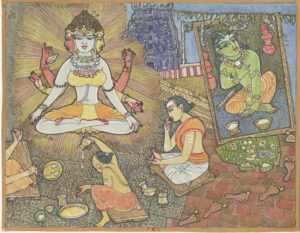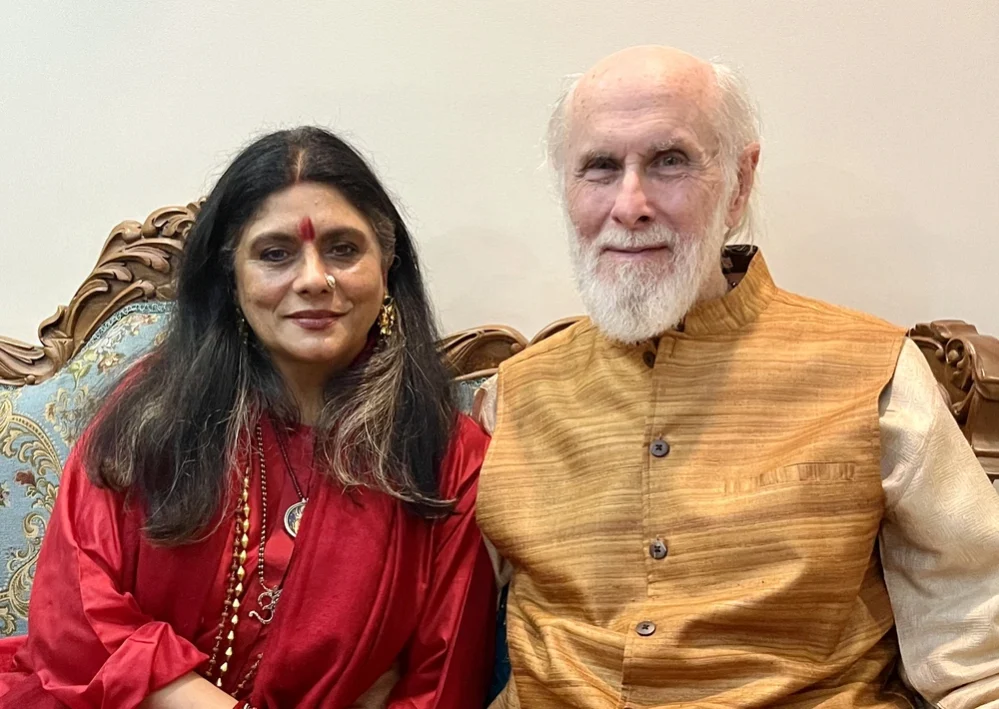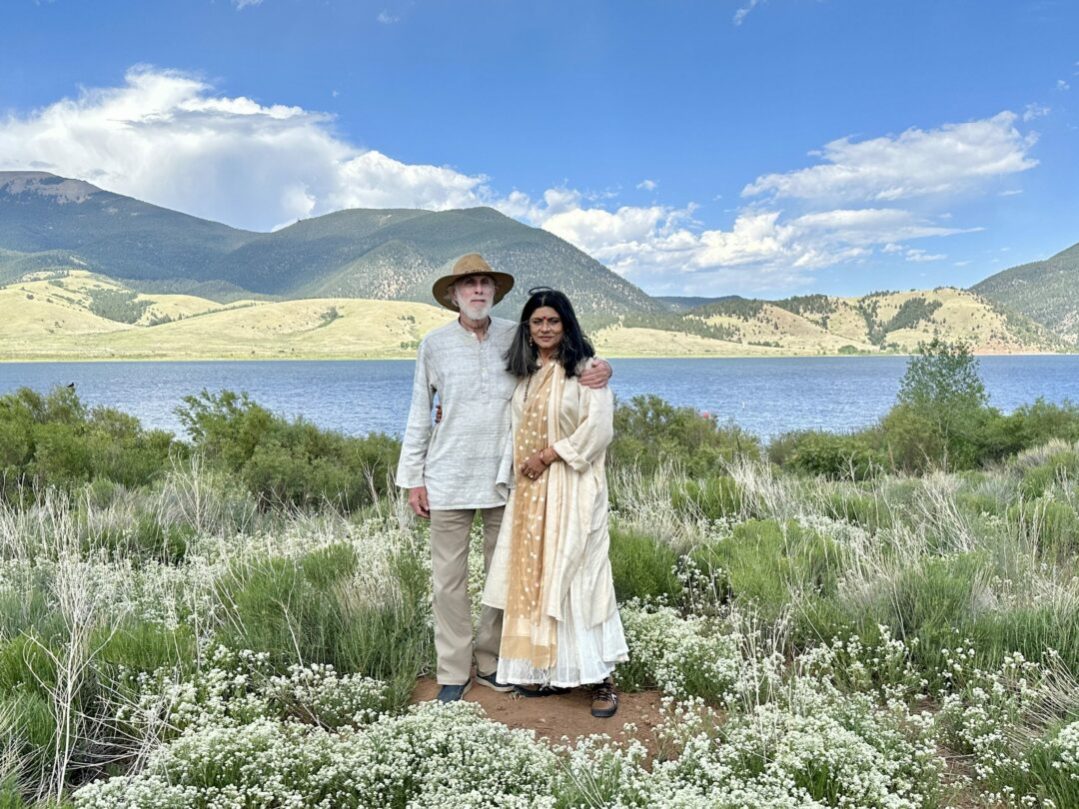By David Frawley
Adapted from Hinduism and the Clash of Civilizations.
During the Eurocolonial period, Indian history and civilization were distorted to fit European perceptions. A new school of thought is needed that will see Asian history and tradition with Asian eyes and thought, beginning with India .
The “clash of civilizations”
A clash of civilizations is occurring throughout in the world today, a war of cultures at various levels in both our personal and public lives. This clash is partly because of rising historical and cultural awareness on the part of newly-independent countries, beginning with India . The Western-European/North American culture is currently predominant and is strongly, if not rudely, trying to eliminate or subordinate the rest. Yet Western civilization is spreading itself not so much by force, as in the colonial era, but by subtle new forms of social manipulation. These include control of the media and news information networks, control of the entertainment industry, domination of commercial markets, continued missionary aggressiveness by Western religions, and – as important but sometimes overlooked – control of educational institutions and curricula worldwide.
This control of education has resulted in a Western-European/North-American view of history and culture in textbooks and information sources in most countries, including India . Naturally, people educated according to Western values will function as part of Western culture, whatever may be the actual country of their birth. They will experience an alienation from their native culture in which they have not really been raised. They easily become a fifth column for the Westernisation of their culture, which also means its denigration or, at best, its commercialisation. An authentic Indian or Indic perspective, a worldview coming out of the culture ofIndia and its particular values and perceptions, is hardly to be found, even in India . The Western school of thought is taught inIndia , not any Indic or Indian school of thought.
The Indic school of thought
What is the Indic school of thought, one might ask? It is not at all something new or unknown. It is the great spiritual, philosophical, scientific, artistic and cultural traditions of the subcontinent that are among the largest and oldest in the world. It is the emphasis on dharma, on karma, on pluralism and synthesis, on yoga sadhana and moksha. It is not only the tradition of ancient sages from the Vedas and Upanishads to Buddhist and Yoga traditions but also modern teachers like Sri Aurobindo and Swami Vivekananda. It is not only the vast literature of Sanskrit but also that of the regional languages and dialects of the subcontinent, most of which have older literary traditions than the languages of Europe such as English.
All major cultural debates are now framed according to Western values and perceptions, and so they will naturally serve to uphold them. The important issues of Indic civilization today are framed according to the principles or biases of the Western school of thought. These include what Indian civilization is, when India as a nation first arose, what the real history of India is, how to reform Indian society, and how India should develop in order to have its rightful place in the future world. As the debate is defined according to the approach and values of Western civilization, India does not always fare well, and India as its own independent source of civilization is seldom acknowledged. India is judged as if it should be like another USA , UK or Germany , which it can never be, nor should be. This only makes Indians feel inferior or wrong.
The Western school of thought has denigrated or overlooked the Indic school, particularly in the Indian context. For example, the Indic school has its own history sources through the Vedas, Puranas and various historical texts (Itihasas) that are quite massive and detailed and have much internal consistency. However, in writing the history of India , the Western school does not give these any place. They are dismissed as, at best, mythology and, at worst, fraud. Instead, it defines the history of India according to outside influences, as a series of invasions and borrowings mainly from the west, from cultures the West knows better and has more affinity with, which makes India seem dependent upon the West in order to advance its civilization again today.
The Western school of thought negates the relevance of the traditions of India . This is not simply because the Indic tradition is wrong, unsophisticated or irrelevant. It is because Western civilization is hegemonic, if not predatory in nature, and such ideas help promote its spread. Its information about India contains a built-in poison. It is meant to undermine the culture of the region and subordinate it to the West, however objective, scientific or modern its approach may appear to be.
When India as a nation arose is defined by the Western school as 1947, the year of independence. It founders were Nehru and Gandhi, who inherited a united region from the British, before which India was just a confused mass of local kingdoms with no national consistency. On the other hand, according to the Indic school, India or Bharat as a country arose in the Vedic era as the type of dharmic/yogic culture that has been the main characteristic of Indian civilization through history. This spiritual or yogic orientation can be found in the cultures of all the regions of India from Tamil Nadu to the Himalayas , pervading even in the folk art and folk songs of all regions, as well as “high” culture.
Western distortions and the Indian response
In the Western school of thought, an Aryan invasion or migration is used to describe the way in which ancient Vedic civilization took root in India , as if it were an alien force of intruding barbarians. In the Indic school of thought, the whole idea of an Aryan invasion/migration is a sign of ignorance. The Indic tradition arose from the rishi tradition of spiritual endeavour, characteristic of the Vedic-Sarasvati culture and related cultures, reflected in the continuity of Vedic literature from the Vedas to the Mahabharata, Buddhist and Jain literature and the Puranas, which all reflect the same principles, peoples and dynasties of kings.
In these current cultural debates, therefore, an overriding greater debate is ignored – that which takes place between the Western and the Indic schools of thought. The Western-style media and academia tries to see what is authentic in Indian civilization and finds it to be wanting, reducing it to little more than caste or superstition. This is not surprising as the Indic tradition has a different focus and values than does the Western tradition. Similarly, from the standpoint of the Indic tradition, we must question Western civilization itself. Is the Western school of thought enlightened? Is it appropriate for India ? Can it understand the unique civilization of the subcontinent?
The Indic school itself is often highly critical of the Western school. For example, when asked what he thought about Western civilization, Mahatma Gandhi replied: “It would be a good idea.” What he meant was that, from the standpoint of the spiritual traditions of India , Western civilization with its materialism, aggression and dogmatism was not highly evolved. Sri Aurobindo wrote on the limitations of Western civilization, while appreciating it in certain areas.
Secular missionaries
The West similarly tries to control any debate on cultural ethics, using slogans of democracy and human rights, which are only used to intimidate weak nations and conveniently ignored relative to stronger or wealthier nations like China or Saudi Arabia . Organizations operating under the cover of human rights are among the most aggressively alienating influences today. They function like “secular missionaries”, ignoring victims of terrorism like the Hindus, while defending the “rights” of terrorist organizations against security forces that are compelled to take action against them. Meanwhile, it is the West that is selling the weapons and profiting by terrorism and civil strife throughout the world. The West originally trained many terrorist groups, such as the Taliban fighters inAfghanistan .
Such groups highlight social inequalities in India , but ignore a colonial history marked by attacks on indigenous Indic culture. The same charges of cultural backwardness have been used throughout the colonial era to undermine the native traditions of Africa ,Asia and the USA , and to justify forced religious conversion and political domination, which is their real aim. Sometimes native intellectuals are taken in by these Western approaches to social issues, not realizing that they are just promoting the colonial agenda of world domination in a more covert form.
New rules of debate
Therefore, it is not enough simply to debate issues of culture, politics, or history in the existing forums in order to promote a more Indian or Hindu view. We must question the very process itself, its basis and the perspective or values behind the school of thought in which the debate occurs. What India needs is the creation of a new Indic school of thought that is dynamic and assertive in the modern global context – one that can challenge Western civilization not merely in regard to the details of history or culture, but also relative to fundamental principles of life, humanity and consciousness. This requires a revival or renaissance in the Indic tradition and its great spiritual systems of Yoga, Vedanta, Buddhism, and Jainism, and also in its political, artistic and scientific traditions. Modern science and technology can arguably be more humanely employed according to Indic or Dharmic values than according to Western religious exclusivity and commercial greed.
The world today needs a critique of “modern civilization” from an Indic or Dharmic perspective, an interpretation of capitalism, socialism, communism, Christianity and Islam from a tradition that is much older, deeper and closer to the spirit in both man and nature. These Western ideologies are failing to address the spiritual needs of humanity and are incapable of creating a world order that transcends dogmatism or exclusivism.
Those of us who are part of the Indic school of thought should emphasize such a greater debate and not get caught in the details of issues already formulated according to the biases of Western civilization. This debate should examine the right structure for society and the real forward direction for history and evolution. We must raise fundamental questions. Is the current Western materialistic view of history valid at all, or are there spiritual forces at work in the world that go beyond all these? Can we understand our history through outer approaches like archaeology, linguistics or genetics, or is a higher consciousness or more intuitive view required as well? Are the records of our ancient sages to be rejected so lightly, whenever we think they do not agree with our views?
The real issue of the Vedas, India’s oldest tradition, is not how these texts might fit into the current model of history as promoted by the Western school of thought, tracing the development of civilization through outward material advances. It is how the existence of such an ancient tradition of rishis, knowers of cosmic consciousness, shows a higher spiritual humanity from which we have arisen and whose legacy we can reclaim.
Towards a new school of thought
India needs a different type of scholarship, an Indic school of thought that has its own values, traditions and methods of reaching conclusions. Those of us who follow the Indian civilization should develop this Indic school in its own right and not merely try to justify our views in terms of the Western or European school of thought, which is hostile and radically opposed to Indic cultural tradition.
I recently raised a call for an intellectual Kshatriya in India – a new class of warrior intellectuals to defend India and its great pluralistic traditions from the onslaught of Western exclusivist approaches, whether religious, economic or political. This call fundamentally requires the creation of such a new Indic school of thought. Such a new Indic school of thought concerns not only philosophies of liberation or yoga, but Indic, Hindu and Dharmic approaches to ecology, the global marketplace, health, science, the status of women, religious freedom, in short to all the main issues in society today – and it should also look beyond these issues, which are often the issues of the Western school, to yet broader concerns. How can we integrate humanity and nature, with its underlying cosmic intelligence? How can we reclaim our spiritual heritage, as a species, that the great yogis have pointed out for us?
Such a new Indic school of thought requires new institutions to promote and embody it, or new Vedic schools. This will arise not through Indology departments in Western-style universities but through a new type of institution with its own funding and curriculum, free from manipulation by the vested interested and ideologies of the Western school and its religious, commercial and political bias.
An intellectual renaissance
The problem is that the Western school created Indian academic institutions that reflect Western values. To try to gain credibility for Indic thought in the context of European institutions, as some well-meaning Hindus are attempting, may be a helpful strategy but misses this main point. Western universities have their own agendas that they will not readily give up. They will not change simply because a few well-intentioned people and groups give them money and sponsor positions to project a more “sympathetic” picture of India and her civilization. Like a sea that salts every river that flows into it, existing trends and interests will force the people coming into them to conform to the dominant Eurocentric values that pervade these institutions. Otherwise, they cannot survive academically.
It is not on single issues that we need to make headway but on promoting the Indic tradition as a complete school of thought in itself, rather than merely as a side subject of Indological study in Western-defined academia. We must look back to such Indic models as Naimisha, Takshashila, Nalanda or Mithila, not only to their institutions, but also to the Gurukula approach and its more intimate and spiritual form of learning.
I urge the young people and the scholars of India to take up this cause. Do not try to define India in the context of civilization as defined by the West. Instead look to the great traditions of India that have their own deeper roots and use it to critique Western civilization and discover its limitations. Rather than seeking to define and control India according to Western perspectives, the West should look to India for guidance on the deeper issues of culture and spirituality. Indians, in turn, should assert their own greater traditions and not simply imitate the West or seek to justify Indian civilization from a Western perspective. True scholars of the Indic tradition need not go to Harvard or Oxford to seek credibility, rather these institutions should come to them.






